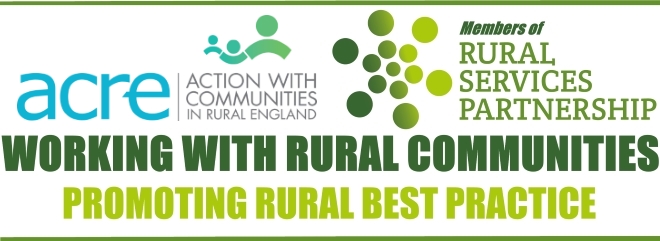T: 01822 851370 E: [email protected]
Visit RSN Survey about life in rural England to find out more.
England’s rural Village and Community Halls are survivors!

The history of village halls goes back over 100 years. Deborah Clarke, Action with Communities in Rural England’s (ACRE) Rural Evidence and Village Halls Manager considers what the future holds for these important rural community hubs in the wake of Covid-19.
Many village halls were built after the First World War – many of them dedicated to those who gave their lives. Much of the impetus for this growth arose from a national drive to develop social and educational provision in rural areas, along with the availability of former Army and RAF huts.
As rural communities have changed over the decades, halls too have adapted slowly to keep pace with the needs and interests of residents. From village reading rooms imposed on the male working classes by landowners to Post Offices and Pilates for all.
Earlier this year, we undertook an extensive survey of village halls across England – something we do every 10 years. We heard from over 2,000 of the circa 10,000 halls currently in existence and found that they continue to be a focal point and social hub of the communities they serve.
But at the time of writing, most village halls across the country have been forced to temporarily shut their doors because of the Coronavirus. Fundraising Fetes, Summer BBQs, and Weddings are cancelled with a loss to hall income and to the local rural economy.
Committees up and down the country are asking ACRE Network members for advice and help accessing government support to make sure they can continue paying their bills. It is not yet clear when the government will provide the green light for them to reopen and the measures, they will need to take to keep users safe. That village halls are eligible for the Government’s Retail Hospitality and Leisure Grant – administered by local authorities - has allowed hall committees to relax in the knowledge that they can be mothballed until restrictions are lifted. ACRE is now calling on government to consider how risk-based assessments that are sensitive to the circumstances of small voluntary groups such as village halls might begin this process.
We are also hearing of stories where some halls are now playing their part in the fight against the virus.
Maiden Bradley Memorial Hall in Wiltshire, which was featured in the Countryfile Christmas Special 2019, is operating a prescription delivery service. Herston Village Hall in Dorset is distributing food donations to vulnerable members of the community. In Middleton St George, the village hall is doubling up as a nursery for the children of key workers, whilst in Piddinghoe Village Hall in Sussex, a local seamstress is using the building to make PPE for a local care home.
The rich heritage of village halls, the availability of government support, as well as the innovate examples of use that are starting to emerge suggest that these valued community assets will survive and will continue to have an important presence in many rural residents’ lives. When it is safe to do so, and communities come back together, hall charities will benefit from renewed enthusiasm and energetic gatherings.
ACRE has provided a briefing paper for village halls on considerations when closing the Hall, guidance on eligibility for the Government grants and will publish information on risk assessments for reopen in due course. If your village hall needs advice then contact your local ACRE Network Member.



